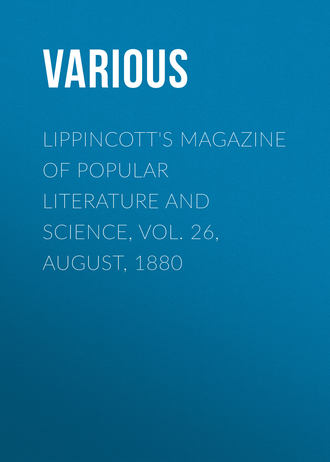Lippincott's Magazine of Popular Literature and Science, Vol. 26, August, 1880
 полная версия
полная версияLippincott's Magazine of Popular Literature and Science, Vol. 26, August, 1880
Жанр: учебная и научная литературазарубежная старинная литературазарубежная образовательная литературазнания и навыки
Язык: Английский
Год издания: 2019
Добавлена:
Настройки чтения
Размер шрифта
Высота строк
Поля









